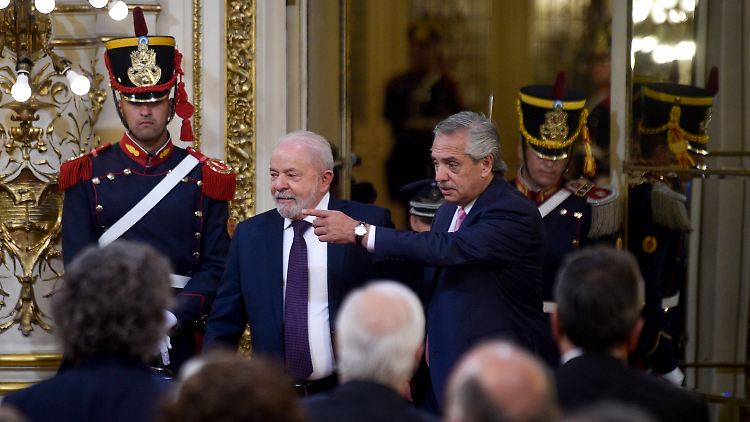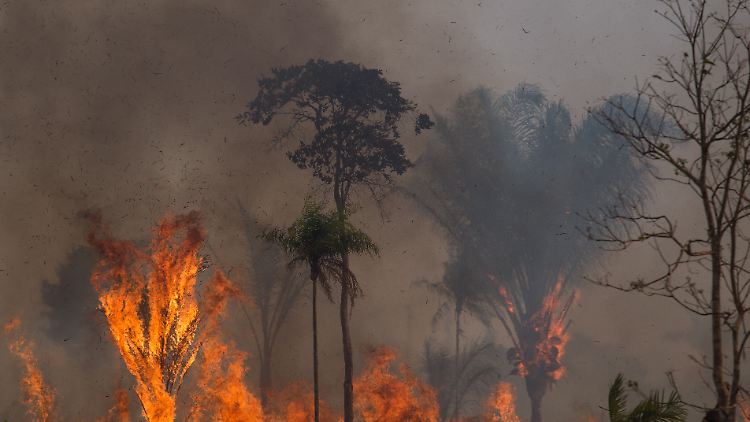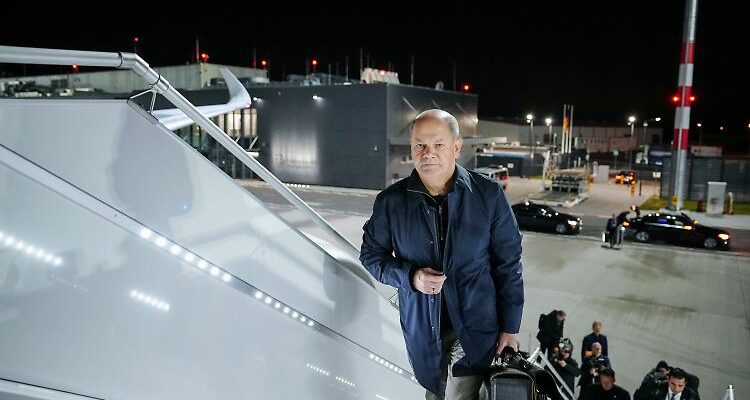The future lies in South America
Scholz comes with his hand outstretched
By Roland Peters, Buenos Aires
01/28/2023 5:47 p.m
Chancellor Scholz travels to South America with a business delegation. It is a visit on which the future of Germany could depend. It is also about saving the EU-Mercosur agreement. The signs are favorable.
The more relaxed years in the Chancellery when it came to energy policy and the supply of raw materials are over. At least since Russia’s broad-based attack on Ukraine, sitting out is no longer the case. The acute issue of leopards and heavy weapons has been dealt with for now. Chancellor Olaf Scholz is now taking care of medium and long-term issues. Almost overdue, the federal government is looking for international partner countries with whom cooperation for Germany’s security can be intensified.
It is no coincidence that Scholz is on a trip to South America from today. Part of the turning point is the diversification of German economic relations, the procurement of raw materials, the procurement of energy. Argentina, Chile and Brazil are economically high on the list of German partners. Argentina and Brazil are also the two major economies that, together with Paraguay and Uruguay, form the Mercosur economic alliance.
With a high-ranking business delegation in tow, the Federal Chancellor is therefore visiting the three states that are to play an important role in the realignment of Berlin and Brussels in the future. Specifically, the EU-Mercosur free trade agreement is to be saved, and China is to be opposed. The three South American countries are currently governed by presidents with similar political orientations.
It will be about food safety, a lot about strategic resources like lithium for electric vehicles, promoting green hydrogen and protecting the Amazon rainforest. Scholz wants to sign several declarations of intent with the three heads of state. In Chile, an updated association agreement for more freedom of trade is already one step further. Argentina would also like to export more to Germany.
food and lithium
Scholz is no stranger to the region and Buenos Aires. He was here privately and more than ten years ago as Hamburg’s first mayor to strengthen trade relations with the agricultural exporting country Argentina. His then counterpart Mauricio Macri moved into the presidential palace shortly thereafter, but was voted out in 2019 for triggering a disastrous economic crisis and taking on debt. The current president, Alberto Fernández, is a Peronist and has a stronger social focus, but is more moderate than his vice-president, Cristina Kirchner.

Brazilian President Lula da Silva (left) during a state visit to Argentina and its President Alberto Fernández. Brazil and Argentina are the main Mercosur countries.
(Photo: AP)
Fernández took office practically at the beginning of the corona pandemic and all its economic consequences. His poll numbers are bad, inflation was around 100 percent in 2022, and hardly anyone believes that he can and will run again in the presidential election at the end of the year. Nevertheless, he and the Peronists would do well to have a bit of glory in foreign policy successes, if that promises a better future for the lower and middle classes.
Argentina is a large agricultural exporter and is eyeing the opportunities presented by the changing geopolitical situation. One can be a reliable supplier of food and energy, according to Argentine government circles about the expectations of Scholz’s visit. The meetings with business representatives from both countries will deal with short-, medium- and long-term strategies for more intensive business relations.
Argentina not only wants to be a supplier of raw materials, but also wants to sell them to Europe after processing. Germany is the country’s most important trading partner in the EU. Together with Chile and Bolivia, Argentina forms the so-called lithium triangle, where the world’s largest known reserves of the raw material are located. This is currently essential for the conversion to electromobility. China, for example, is very active economically in Chile and is a clear competitor to the EU in the region.
year of decision

Huge areas are cleared with fire – then the herds of cattle are driven there.
(Photo: picture alliance/dpa)
The German government wants the free trade agreement with Mercosur to become what the EU’s cooperation agreement with Chile is. The economic area includes Argentina, Brazil, Paraguay and Uruguay. Brazil’s agricultural sector has so far resisted a required additional agreement to protect the Amazon rainforest and had an ally in ex-President Jair Bolsonaro. Most of the forest is cleared for meat production. But now Lula da Silva, an old acquaintance of Scholz, is in office. The EU recently imposed import bans on products from deforestation areas. Lula has announced that she will fight deforestation with determination.
The EU-Mercosur agreement is snagged by additional European requirements that go beyond the original text of the agreement. France, Austria and Ireland, for example, fear that South American agricultural imports could ruin their own farmers. French President Emmanuel Macron had named better protection of the rainforest as a condition for ratifying the agreement.
The federal government wants to make a new attempt with Scholz’s visit and save the agreement with additional agreements. The political window has arguably never been more favourable. Mercosur hopes to be able to benefit from the geopolitical and energy policy upheavals and thus get out of the crisis. At the same time, Germany and the EU are looking for reliable partners for the future. But time is pressing. “If it doesn’t work out this year, it will probably never work,” says South America expert Detlef Nolte from the Leibniz Institute for Global and Regional Studies.
That’s what Scholz’ meeting with Lula will be about. Should Brazil reach an agreement with the EU, Argentina will very likely go along with it. It would be possible to put the trade part into effect for the time being and have the complete text later ratified by all EU countries.
This should also keep the Chinese competition in check. One has to be better, more active than China and present in the region, according to German government circles. When it comes to lithium, Germany can no longer afford the luxury of letting others do the complicated and dirty work and not having its own sources of supply. Because, on the other side of the Atlantic, this could become elementary for Germany’s security.
